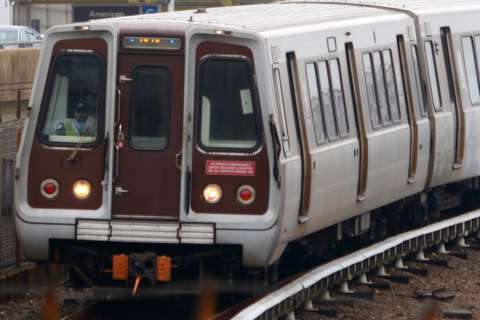WASHINGTON — Metro will need $32.9 million in additional taxpayer funding to cover an arbitration panel’s award of limited raises for the agency’s largest union.
A resolution set to be approved Thursday by Metro’s Board of Directors outlines the costs as $7.8 million — needed by the end of this year to help cover payments, including retroactive raises — and $25.1 million to cover increased costs in the current budget year that ends June 30.
Metro had said the total increased costs under the four-year contract with Amalgamated Transit Union Local 689, which covers July 2016 through June 2020, would be $82 million. It is now estimated to be $89.3 million for the 1 percent, 2.5 percent, 1.5 percent, then 1.5 percent raises from July 2017 through January 2020, a Metro Board briefing document said.
The employees will be paying more toward healthcare costs as part of the new contract. Metro estimated those payments will save the agency $21 million. The new contract also eliminates carry over of vacation days, which Metro expects will save money long term. For now, $15.3 million previously identified in the current budget year will be paid out for unused vacation days that had been banked, Metro spokesman Ron Holzer said in an email.
Remaining funding for salaries for the year beginning in July 2019 will be part of Metro’s next budget.
If Metro follows past patterns, next year’s budget could include fare increases in addition to any potential additional local tax dollars. Metro estimates the raises would total $41.1 million, compared with 2016’s salaries.
In a sign the arbitration ruling could have been in line with what Metro might have been able to negotiate had talks not broken down, the Metro Board is also set Thursday to approve a separate negotiated agreement with a professional union, OPEIU Local 2, that requires additional funding.
That contract for far fewer workers requires $5.8 million in additional contributions from local governments beyond the approved budget by the end of June.
Because there are fewer than 1,000 professional and administrative employees in OPEIU Local 2 but more than 8,000 in ATU Local 689, the OPEIU contract requires about $2,000 more per worker in additional funding for now. The upfront funding does not address Metro’s continued deferrals of contributions to its pension system.
The OPEIU contract also increases the amount employees are required to pay toward health care, and it changes some work-assignment rules.
While Metro and the region knew the changes were coming, they did not budget for them in order to avoid tipping their hand in negotiations or arbitration proceedings.







